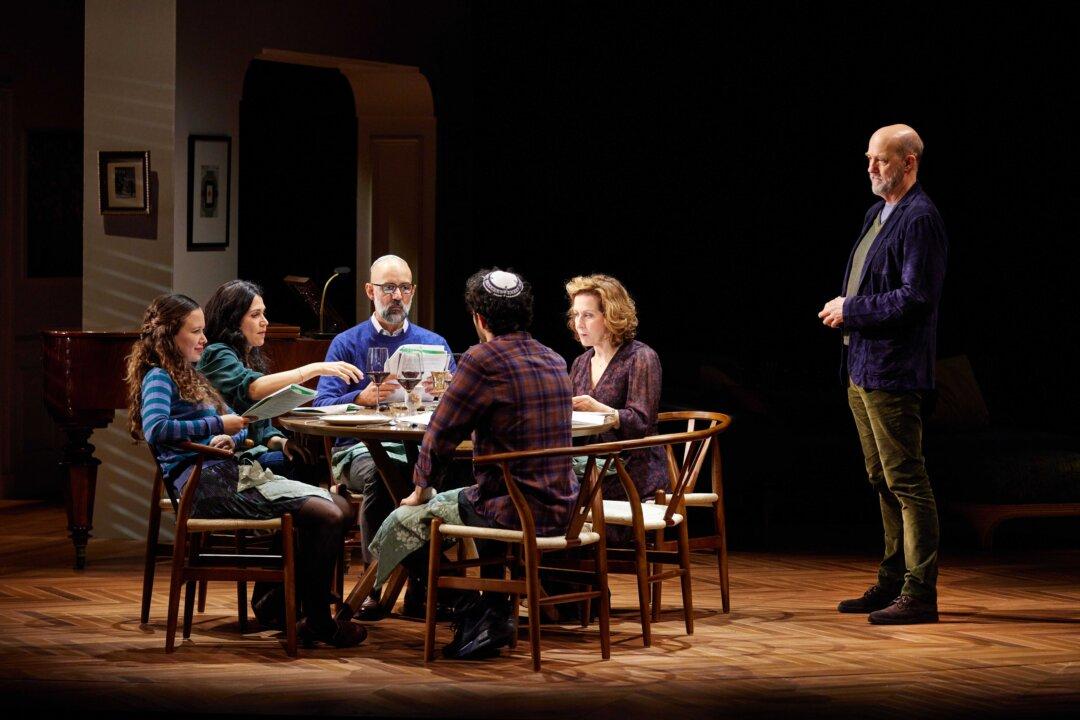NEW YORK—“You can fight for what’s right wherever you are. But you have to be alive to do it.” So says a character in Joshua Harmon’s powerful drama, “Prayer for the French Republic.” Previously seen at the Manhattan Theatre Club (MTC) off-Broadway, the show is now at the Samuel J. Friedman Theatre—MTC’s Broadway space.
The play begins in 2016, in Paris, France, an unlikely time and place for anti-Semitism to be on the rise. This fact hits home for psychiatrist Marcelle Salomon Benhamou (Betsy Aidem) when her adult son Daniel (Aria Shahghasemi) is attacked. Horrified by what happened, Marcelle is angry at Daniel for calling attention to his religion by wearing a yarmulke when outdoors.





